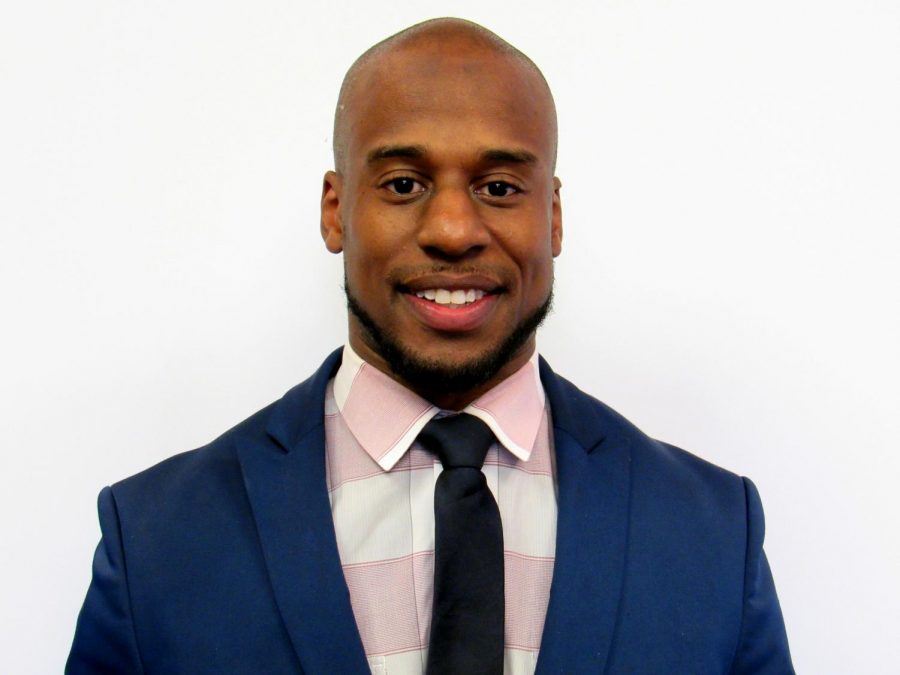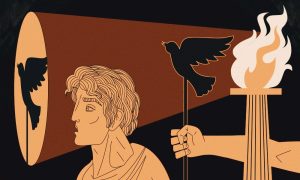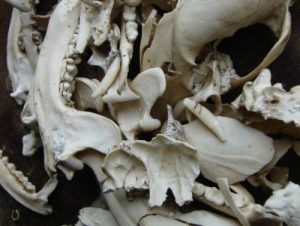Division I athlete turned Inspiring leader: Shawn Tucker
September 5, 2018
Shawn Tucker is the new Associate Vice President and the first African American director of Athletics in NJCU history. He is one of the youngest directors in the National Collegiate Athletic Association Division III. “It’s humbling but I don’t take it lightly,” Tucker said. Acknowledging that he’s paving the way for many who’ll come after him.
Born in Chicago to Jamaican parents, Tucker grew up in an avid soccer family. Throughout his childhood, he also played football, basketball and ran track. When he was 8 he and his family moved to Parkland, Florida where he later attended Marjory Stoneman Douglas High School. By junior year, he realized his potential in football and was recruited by Ohio State, Rutgers University and North Carolina State.
In 2002, Tucker was accepted into Rutgers on a full-ride scholarship for football. As a wide receiver, he helped his team to a win the 2006 Texas Bowl championship and was also named team captain in his senior year. He also explored many majors, from economics to communications. He served as a member of the Student-Athlete Advisory Committee (SAAC) and the Athletes in Action Student Leadership Team. His football career was halted in his senior year when he broke his ankle. However, his injury gave him a chance to think about life after football. He earned a double major in Geography & Labor Studies from Rutgers in 2007.
After graduation, he became a geographic information system specialist in Newark where he mapped crime data. Tucker was an intern for a year and a half for Rutgers T.E.E.M. (Transitional Education and Employment Management) Gateway which aimed to help youth become productive members of their communities and improve their quality of life. Afterwards, he continued to be involved with city planning and mapping. He later earned a Master’s of City & Regional Planning (MCRP) from the Rutgers Bloustein School of Planning and Public Policy.
In 2009, Tucker was hired by Rutgers as an assistant athletic director and then associate athletic director. Soon after, he began to take on many roles at Rutgers. He assisted with the launch of Rutgers Leadership Academy which supports student-athletes by providing valuable information and tools for decision-making. He oversaw the Rutgers Leadership Academy Advisory Board, SAAC and Rutgers Athletics Internship Program. He also facilitated in the launch of R Care, its mission was providing a program that solely focuses on life beyond sports. Tucker learned that as an athlete you tend to lose yourself in the sport so a program like R Care would prevent that. Tucker sees purpose and identity as key elements for student-athlete development. He wants to give students an opportunity to better themselves by planning for the future while continuing with sports. Learning new skills while in college is important since students may only be athletes for a short time.
Faith has always been an important aspect in his life. He has been involved with campus ministry at Rutgers and Abundant Life Family Worship Church in New Brunswick.
Asked about improvements he wants to make, Tucker said he wants to “Create a culture where everyone reaches their core purpose,” Tucker also wants to build a stronger presence through video where athletics is the main focus. In the fall of 2018, NJCU Athletics will roll out the Knight Institute which will develop athletes in their academics, community and self. The four-month program will run in the fall and the spring. As for SAAC, he plans to make the program stronger by 2019-2020. (SAAC is an NCAA mandated group at Division I, II and III colleges and universities, comprised of the student-athletes who represent their athletic programs to provide insight on the student-athlete experience.)
As for the next generation of student-athletes, he said, “The goal is being leaders, people who are problem solvers and empathetic to social issues,” Tucker said. “I hope they find their purpose by helping to serve.” While Tucker advocates for leadership, he accepts zero tolerance for hazing because it creates a spirit of pride and arrogance.












